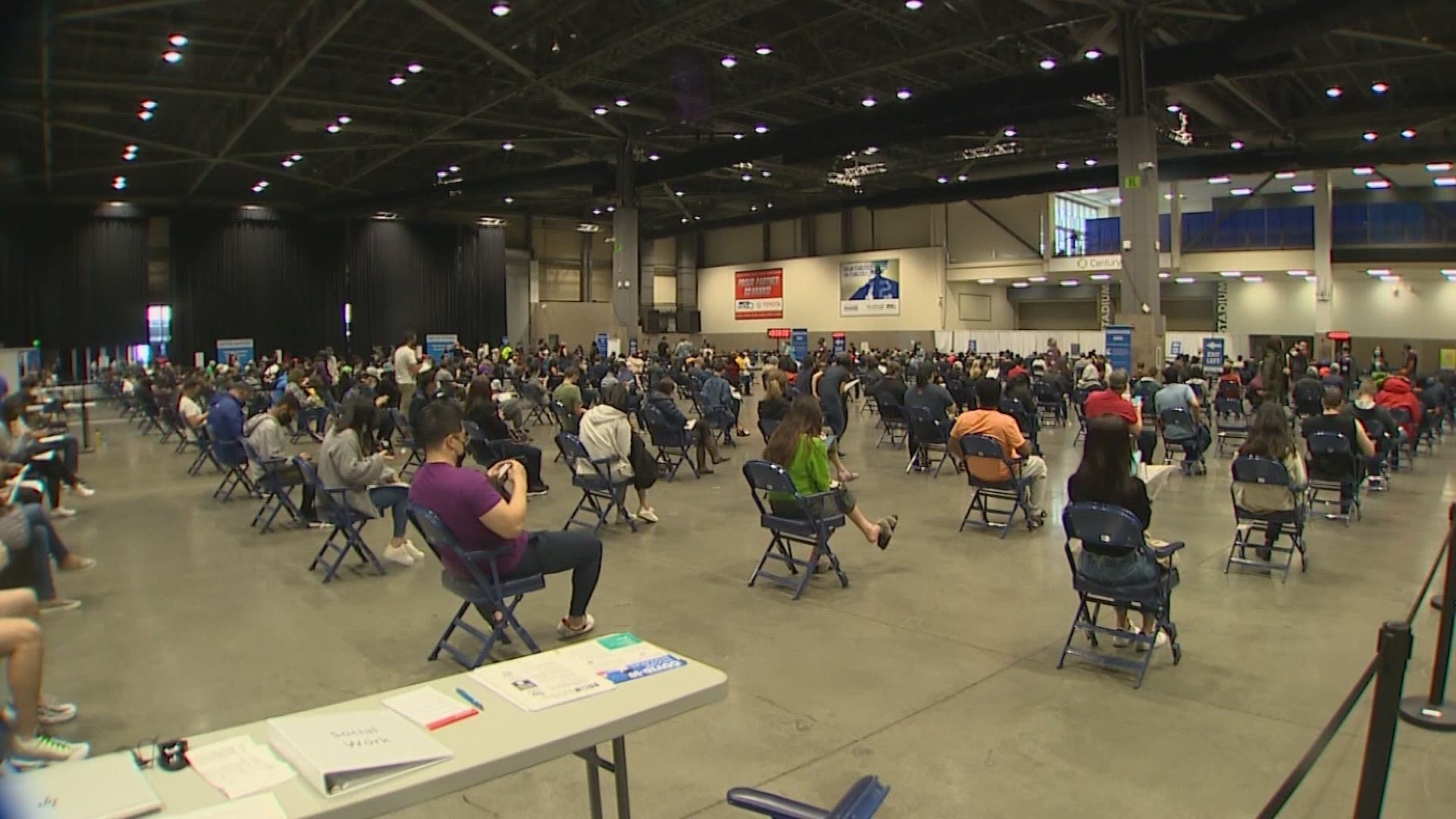SEATTLE — Though several Washington counties squeaked by Tuesday without a reversion to Phase 2 COVID restrictions, Gov. Jay Inslee said there is work to do to prevent rollbacks in the coming weeks.
After much speculation that King, Snohomish and other counties that have failed Phase 3 metrics would revert Tuesday, Inslee announced a two-week phase pause as officials determine if the “fourth wave” of coronavirus cases has plateaued.
But Inslee, joined by State Secretary of Health Dr. Umair A. Shah and King County Public Health Officer Dr. Jeffrey Duchin, stressed the importance of the state’s vaccination campaign, which has flagged in recent weeks. State data shows the rate of vaccinations (on a seven-day average) leveling off around the start of April, and incomplete trend data into the start of May shows a dropoff.
“We know vaccines are the ticket to full reopening,” Inslee said. “And we’re very pleased about the success today in that regard. But we need to continue those efforts.”
Washington State Department of Health data shows about 54% of residents over the age of 16 have started the vaccination process, and just under 39% are fully vaccinated. Including all residents, those numbers fall to 43% starting the process and 31% completed. That’s well below the 70% that experts say would control spread, or debated levels that could indicate "herd immunity."
Now, officials face a problem of diminishing returns: with vaccine eligibility wide open, many people who want the shot or have the means to access it have likely already sought it out. Now, those facing issues of equity or hesitancy remain, requiring further outreach and communication.
“I think it’s all about identifying where the hesitancy is coming from,” said Sophia Benalfew of the Ethiopian Community in Seattle.
The Ethiopian Community of Seattle is a success story on this front. Facing concerns of access and hesitancy because of language barriers and misinformation, the group organized a series of community meetings with leaders and experts this spring to meet those with questions where they are. The results surprised city leaders – more than 600 people booked shots, exceeding the available specialized slots at the time, and spilling over into general access clinics.
Benalfew believes the connection is key: encouraging vaccine use through trusted community voices.
“Because people tend to believe people in their own culture who understand them,” she said. “So if in any community I believe professionals, you need to be a professional to have that authoritative voice, so if these professionals speak to their own community, it really matters.”
Seattle city leaders are considering how to replicate ECS's success for other hesitant groups.
Experts have long said BIPOC communities may experience increased vaccine hesitancy because of historical mistrust of the medical system born of mistreatment.
But they are not the only groups that may prove to be difficult to inoculate against COVID-19. An AP-NORC poll at the start of the year showed 44% of Republicans said they “definitely or probably won’t get vaccinated,” compared to 17% of surveyed Democrats.
Republicans in Congress like Senate Minority Leader Mitch McConnell (R-KY) have even encouraged vaccination.
State Rep. J.T. Wilcox (R-Yelm) said he believes politics should be removed from the vaccination discussion, and has shared his choice to get vaccinated with anyone who cares to listen.
“This is a choice that isn't political,” he said. “It's what's the best choice is for you and your family. And I present that to people every time and again, say I've thought about this because I've been involved in animal agriculture all my life, I've given tens of thousands of vaccinations myself. And I think it's safe and effective at this point.”

